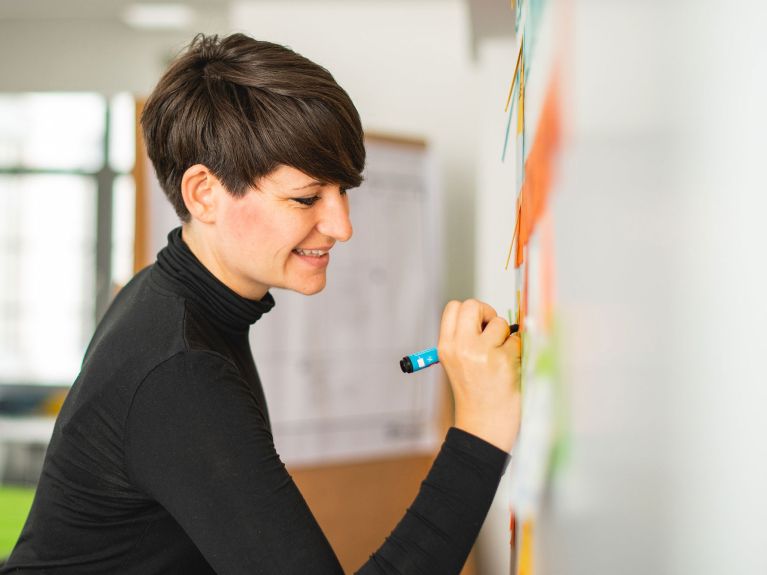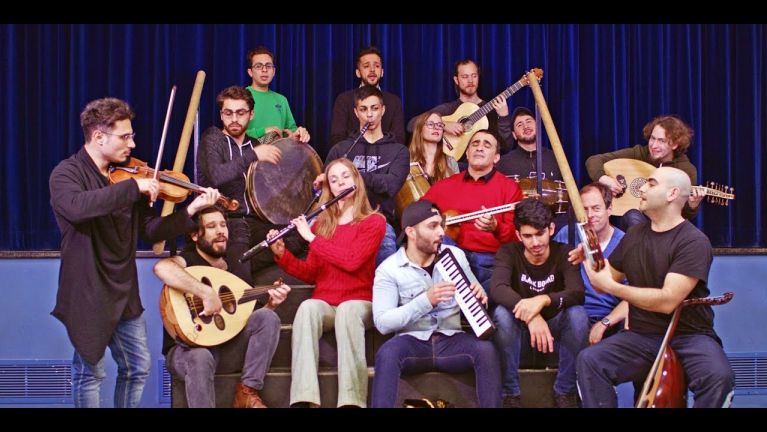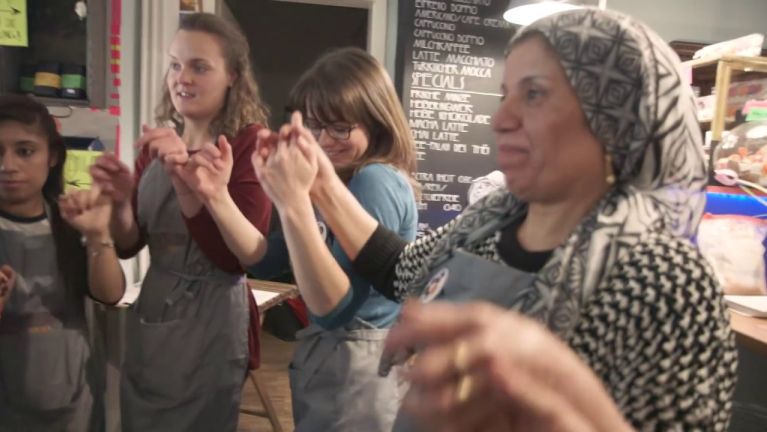Boosting job creation for refugees
The Special Impact Award honours social startups that help refugees enter the German labour market. Here are the strongest teams in 2018.

Many refugees in Germany share the aim of working for a German company in a good job that is in line with their qualifications. The ‘Ankommer. Perspektive Deutschland’ (Arrivers. Prospects in Germany) funding programme, sponsored by the KfW Foundation and Social Impact, an agency for social innovation, supports social startups that train and employ refugees. Here we introduce four favourites to win the Special Impact Award on 18 October in Frankfurt.
Gaining new self-confidence
‘MITmacher’ from Hamburg integrates and trains migrants through voluntary activities. The project focuses on changing people’s perspective. If you feel needed instead of just receiving aid, “you regain self-confidence and the strength to shape your own future,” says initiator Anne Busch. Everyone benefits: social organizations (e.g. old people’s homes) gain motivated supporters; the volunteers are given an important task, improve their language skills and get to know Germany.
Building musical bridges
The Frankfurt-based ‘Bridges – Musik verbindet‘ project brings local and refugee musicians together on stage, achieving musical and interpersonal integration. The initiators help refugee musicians to make contacts, practice their profession and be paid a fair fee. “This constructive cooperation enables people to experience improvisation, innovation and diversity management,” says Johanna-Leonore Dahlhoff, the flautist who manages the project which has already brought together 100 musicians from Frankfurt and all over the world for more than 170 performances.
Dieses YouTube-Video kann in einem neuen Tab abgespielt werden
YouTube öffnenThird party content
We use YouTube to embed content that may collect data about your activity. Please review the details and accept the service to see this content.
Open consent formCooking for more tolerance
The Munich-based association ‘Über den Tellerrand kochen’ (Cooking outside the box) promotes friendships between refugees and locals. It’s part of a Germany-wide network operating in more than 30 cities. They regularly stage intercultural cooking events – for example in a café belonging to the Munich Volkshochschule (adult education college). “Education is a key aspect of the café,” explains managing director Jasmin Seipp. Even if the knowledge gained is not yet sufficient for a job on the free labour market, the refugees grow into their daily tasks and improve their language skills.
Dieses YouTube-Video kann in einem neuen Tab abgespielt werden
YouTube öffnenThird party content
We use YouTube to embed content that may collect data about your activity. Please review the details and accept the service to see this content.
Open consent formTraining intercultural mediators
Self-determination and mental health take top priority for the Berlin-based ‘R3SOLUTE‘ startup, a conflict-management project founded by international law expert Helen Winter. “Refugees learn to resolve conflicts and take on responsibility,” says co-founder Sebastian Winter, a neuroscientist and trainee doctor. The project trains refugees as mediators. For example, as intercultural trainers they help overcome problems in communal accommodations. Another focus is on overcoming the refugees’ psychological traumas.
Dieses YouTube-Video kann in einem neuen Tab abgespielt werden
YouTube öffnenThird party content
We use YouTube to embed content that may collect data about your activity. Please review the details and accept the service to see this content.
Open consent form© www.deutschland.de



